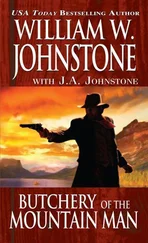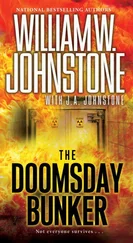Then the vicious circle began to revolve.
Mr. Fisher could not get a job because of the bad reports the local credit bureau gave to any prospective employer; he could not pay his bills because he had no job; he could not borrow the money to pay his bills because he had no job with which to repay the borrowed money… if he could have borrowed any.
Nasty letters from the collection bureaus; abusive phone calls from the collection bureaus; threats at all hours of the day and night—over and over.
Five months after their daughter was freed from a charge that should never have been hung on her, with the only utility still operating being the gas, they elected to use that. They locked themselves in the kitchen and turned on the stove and went to sleep.
They never woke up.
A day after she buried her parents, Carla took her father’s shotgun, waited in the DA’s garage until he came home from work, and shot him four times in the chest and once in the face.
Then she joined the Rebels.
None of that could have happened in Ben Raines’s Tri-States.
* * *
There were many things different, unique, and quite experimental about Tri-States. One visiting reporter called it right-wing socialism, and to a degree, he was correct. But yet, as another reporter put it, “It is a state for all the people who wish to live here, and who have the ability to live together.”
In the Tri-States, if a family fell behind in their bills, they could go to a state-operated counseling service for help. The people there were friendly, courteous, and openly and honestly sympathetic, if that family could not pay their bills because of some unforeseen emergency, and if that family was making a genuine effort to pay their bills, utilities could not be disconnected, automobiles could not be taken from them, furniture could not be repossessed. A system of payment would be worked out. There were no collection agencies in the Tri-States.
As Ben once told a group of visiting tourists, “It is the duty and the moral and legal obligation of the government—in this case—state government, to be of service and of help to its citizens. When a citizen calls for help, that person wants and needs help instantly, not in a month or in three months. And in the Tri-States, that is when it is provided—instantly. Without citizens, the state cannot exist. The state is not here to harass, or to allow harassment, in any form. And it will not be tolerated.”
* * *
Within a week’s time, all towns within a fifty-mile radius of the shadows of the Great Smokies were shut down tight. Every person over the age of eighteen—if they so desired, and most did—were armed. With those weapons, the people were making their first real start in a hundred years in establishing some control over their lives.
A Tennessee federal highway patrolman almost messed in his underwear shorts when he drove through a small town and all the adults were armed—and not just with squirrel rifles, either. Many had M-14s, M-15s, and M-16s. A few carried old BARS, Grease Guns, Thompson, and M-11s and 10s.
“Hey!” he shouted at one young woman. She was pushing a baby stroller and had a .30-caliber carbine over one shoulder. “What the hell is going on around here?”
“You want something, trooper?” she replied.
“Ah… yeah. Where are the… I mean… what happened to Chief Bennett and his men? The police station is empty.”
“They all quit.”
“Quit!” The trooper was uncomfortably aware of a crowd of people gathering around his patrol car. They were all armed. Well armed. “Possession of any type of automatic weapon is illegal,” he spoke from rote. “The possession of any shotgun larger than a 20-gauge is also against the law. No one may own a hunting rifle in a caliber larger than a .22. If you people…”
“Shut up,” he was told.
He shut up.
“Times have changed,” a man spoke. “If you don’t believe it, just move your head a bit to the left.”
The trooper turned his head, slowly, and found himself looking down the bore of a 9-mm SMG. “I believe, I believe,” he said. “Man… Mister, put that thing on safety. Please?”
The 9-mm was lowered.
“Burt,” a woman said, “you’ve been a decent sort of trooper. I don’t think you ever liked all this high-handed business coming out of Richmond. Did you, Burt?”
Burt knew if he uttered the wrong answer someone would soon be picking him up with a shovel and a spoon. He told the truth. “No, ma’am—I haven’t liked it.”
“I reckon the government will be sending in federal lawmen to take our guns, don’t you, Burt?”
“I reckon that is the truth.”
“They are not going to make it this time, Burt.”
“I kinda figured that, too, Miss Ida,” Burt said. “I sure did.”
“We wouldn’t want to see you among that crowd of feds, Burt.”
“Miss Ida, you ain’t gonna see me in that crowd. Now you can just bet on that.”
“Burt,” a man said, “you tell your commanding officer that the people in the towns around the mountains are law-abiding folks. We’re not vigilantes and no one has been hanged by mob law and no one is going to be. But anyone who tries to come in here and take our guns will be met with gunfire. You tell your commanding officer that, Burt, now, you hear?”
“Yes, sir.”
“You go on, now, Burt. And, Burt…”
The trooper looked at the man.
“…you’re welcome back here in Sevierville just anytime at all. If we have law problems with anyone, we’ll be callin’ for you to come in and handle it.”
“Yes, sir. I’d be right proud to do that for y’all. Just anytime at all. You call HQ—I’ll sure roll on it.”
“Bye, Burt.”
Trooper Burt put his patrol car in gear and rolled out of Sevierville. Smartly, as the British would say.
* * *
Sabra Olivier sat in her office and watched the six o’clock news; watched it with a sick feeling in the pit of her stomach. The censored report was bland stuff, stories that would not have made it prior to Hartline’s… visit.
She shuddered at the memory—or memories, she corrected herself.
For Hartline had been back several times, to, as he put it, “Get him another taste of successful pussy.”
Sabra felt like throwing up on the floor.
She got up and paced the floor.
The news was so innocuous she changed channels; but that move produced nothing better. Hartline and his men had been to all network offices. She looked at the anchorwoman on ABC and wondered if Hartline had forced his way with her, too. Sabra concluded the mercenary probably had. But, she smiled cattily, with that one’s reputation, Hartline probably hadn’t had to do much forcing.
She sat down in her chair and propped both elbows on her desk, chin in her hands. How did we get to this point? she pondered. Good Lord, were we all so blind to the truth we failed to see Logan was just a front for Lowry?
I guess so, she sighed.
We were so busy protecting our own precious right to report the news—as we saw it, with our own little twists and subtle innuendoes—we failed to notice what was really happening around us; failed to pick up on the real mood of the people.
The majority, she admitted.
The taxpayers, she once more sighed.
“Guardians of freedom,” she muttered. “But whose freedom? Ours, or the people?”
She sat up straight in the chair as an idea came to her.
A dangerous idea, for sure, but one way—if she could pull it off—to nail Hartline’s cock to the wall. With him attached. Hanging about a foot from the floor.
She savored that mental sight for a few moments, then reached for the phone. She pulled her hand back. Surely Hartline would have it all bugged. Well, she’d just have to be sure of what she said.
Читать дальше










